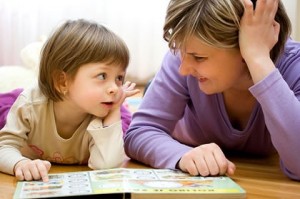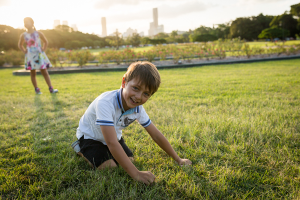Routines that allow flexibility are a good way to create resilient children.
Routines are important for children as they provide a sense of predictability in an otherwise unpredictable world. Routines also facilitate a sense of control and independence as children know what is expected, know how to complete tasks ask for help, and learn to manage their actions within a set pattern of activities to be done.
 Routines can provide much comfort in times of distress, again because your child knows what to expect and what comes next, helping with their resilience or ability to continue on and cope with the situation.
Routines can provide much comfort in times of distress, again because your child knows what to expect and what comes next, helping with their resilience or ability to continue on and cope with the situation.
Encourage your child to be involved in establishing routines within the family, e.g. what needs to be done in the mornings before school?
Making the list of tasks into a visual chart can be helpful for both yourself and your child as it makes the routine easy to refer to and can be personalised to encourage a sense of ownership and adherence.
For routines to be most effective, they need to be able to have some flexibility too.
 We can’t always predict what is going to happen on a daily basis and life will throw challenges our way, and at our kids too! So helping our children to understand that, and experience some flexibility rather than being stuck in rigidity, teaches them that it is a positive skill to be able to adapt to changes and go with the flow and fosters resilience.
We can’t always predict what is going to happen on a daily basis and life will throw challenges our way, and at our kids too! So helping our children to understand that, and experience some flexibility rather than being stuck in rigidity, teaches them that it is a positive skill to be able to adapt to changes and go with the flow and fosters resilience.



 Encourage your child to pick at least five people then assign each person to a finger or thumb on one hand. This can help your child remember who those support people are, e.g. my teacher is my pointer finger.
Encourage your child to pick at least five people then assign each person to a finger or thumb on one hand. This can help your child remember who those support people are, e.g. my teacher is my pointer finger. Encourage your child to be a friend in order to make and keep friends. Being involved in social, sporting, cultural, school, or spiritual events and groups can also promote a child’s sense of belonging, self worth, and belief that they are surrounded by people who will support them when in need.
Encourage your child to be a friend in order to make and keep friends. Being involved in social, sporting, cultural, school, or spiritual events and groups can also promote a child’s sense of belonging, self worth, and belief that they are surrounded by people who will support them when in need.
